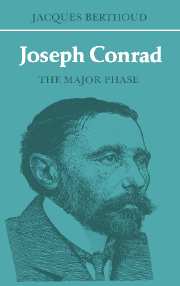Summary
I know I am but a reed. But I beg you to allow me the superiority of the thinking reed over the unthinking forces that are about to crush him out of existence.
Razumov in Under Western Eyes, p. 89At a first glance the resemblances between Lord Jim and Under Western Eyes are more striking than between any two other works by Conrad. The two novels have a similar theme: the exploration of the consequences of an act of betrayal; they have a similar form: an elderly narrator's examination of the motives of a young protagonist over two periods and two locations. These parallels, however, must be treated with caution, for they are so immediately convincing that they tend to blur the essential originality of the later work. Indeed, nowhere is Under Western Eyes more distinctive than at the points of its alleged resemblances with Lord Jim: the nature of the act of betrayal, and the nature of the relationship between narrator and protagonist. In any case, the later novel's affinities with The Secret Agent, though less obvious, are most profound. Far from marking a clean break with its immediate predecessor (as some critics have alleged), Under Western Eyes can be described as taking up its essential concerns (including, of course, the motif of the secret agent), and carrying them into unexpectedly challenging new areas.
Consider, in this respect, Conrad's controversial use of a narrator.
- Type
- Chapter
- Information
- Joseph ConradThe Major Phase, pp. 160 - 185Publisher: Cambridge University PressPrint publication year: 1978

